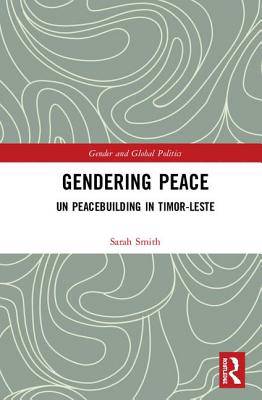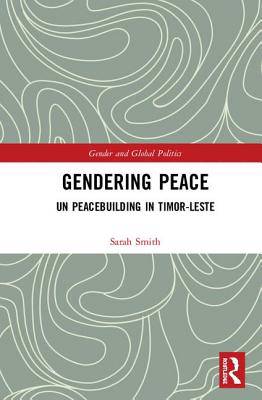
- Afhalen na 1 uur in een winkel met voorraad
- Gratis thuislevering in België vanaf € 30
- Ruim aanbod met 7 miljoen producten
- Afhalen na 1 uur in een winkel met voorraad
- Gratis thuislevering in België vanaf € 30
- Ruim aanbod met 7 miljoen producten
Omschrijving
In 1999, after 24-years of violent military occupation by Indonesian forces, the small country of Timor-Leste became host to one of the largest UN peace operations. The operation rested on a liberal paradigm of statehood, including nascent ideas on gender in peacebuilding processes. This book provides a critical feminist examination of the form and function of a gendered peace in Timor-Leste.
Drawing on policy documents and field research in Timor-Leste with national organisations, international agencies and UN staff, the book examines gender policy with a feminist lens, exploring and developing a more complex account of 'gender' and 'women' in peace operations. It argues that gendered ideologies and power delimit the possibilities of building a gender-just peace, and contributes deep insight into how gendered logics inform peacebuilding processes, and specifically how these play out through the implementation of policy that explicitly seeks to reorder gender relations at sites in which peace operations deploy. By utilising a single case study, the book provides space to examine both international and national discourses, and contextualises its analysis of Women, Peace and Security within local histories and contexts.
This book will be of interested to scholars and students of gender studies, global governance, International Relations, and security studies.
Specificaties
Betrokkenen
- Auteur(s):
- Uitgeverij:
Inhoud
- Aantal bladzijden:
- 174
- Taal:
- Engels
- Reeks:
Eigenschappen
- Productcode (EAN):
- 9780815365198
- Verschijningsdatum:
- 19/09/2018
- Uitvoering:
- Hardcover
- Formaat:
- Genaaid
- Afmetingen:
- 156 mm x 233 mm
- Gewicht:
- 407 g

Alleen bij Standaard Boekhandel
Beoordelingen
We publiceren alleen reviews die voldoen aan de voorwaarden voor reviews. Bekijk onze voorwaarden voor reviews.











